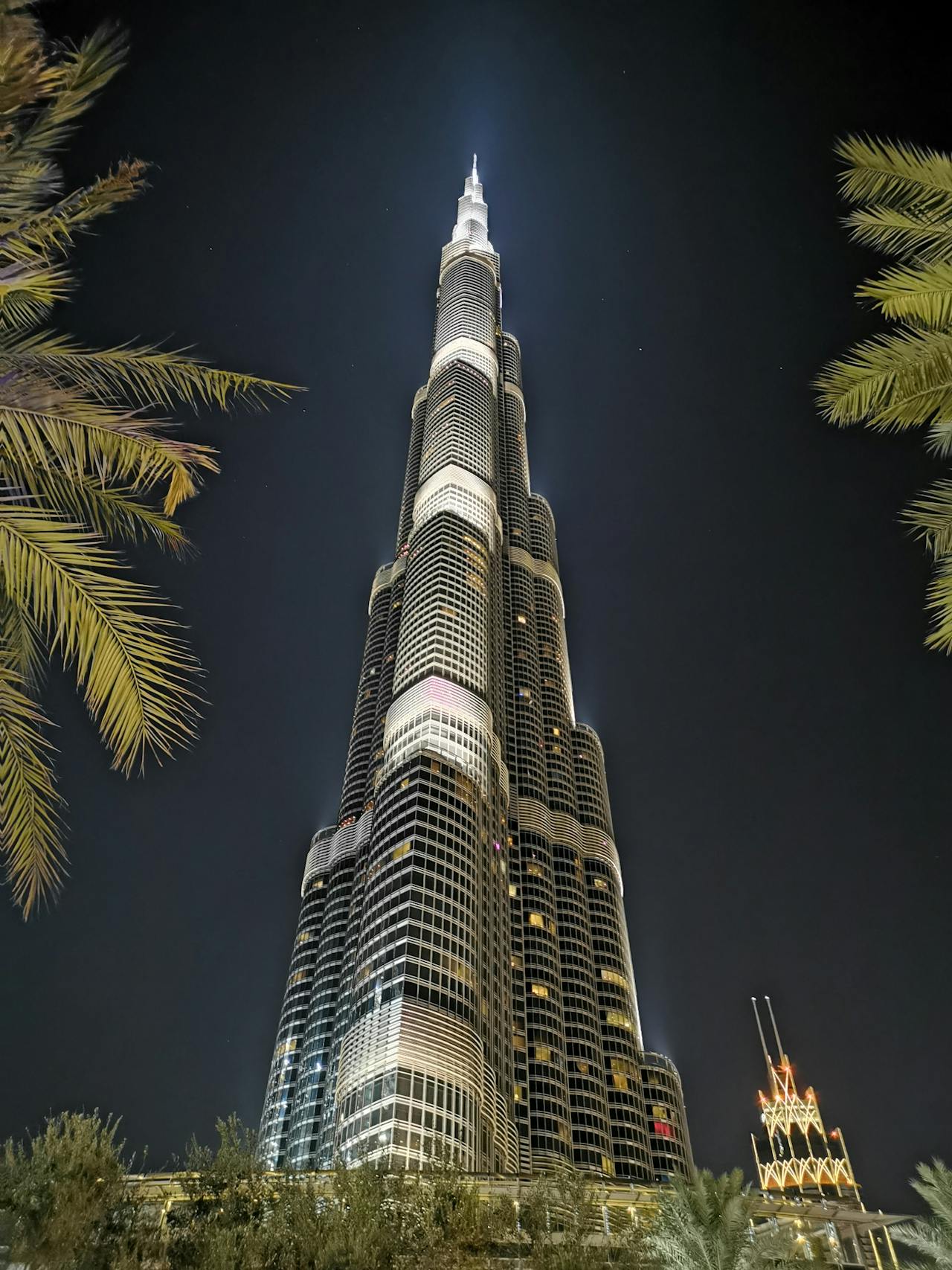Dubai Free Zone vs Mainland: Best Business Setup for UK Entrepreneurs

Dubai has emerged as a premier destination for UK entrepreneurs seeking to expand their operations into the Middle East and beyond. With its strategic location bridging Europe, Asia, and Africa, world-class infrastructure, and business-friendly environment, the emirate offers compelling opportunities for British businesses looking to establish an international presence.
The UAE attracted over $30 billion in foreign direct investment in 2025, making it the second-highest recipient globally. For UK entrepreneurs, this represents not just validation of Dubai's business environment, but also access to a thriving ecosystem of international companies and investors.
However, one of the most critical decisions facing UK entrepreneurs is choosing between Dubai's Mainland and Free Zone business structures. Each option offers distinct advantages and considerations that can significantly impact your business operations, growth potential, and long-term success in the region.
Dubai's Business Landscape
Dubai's business environment is structured around two primary frameworks: the Mainland, governed by the Department of Economic Development, and various specialised Free Zones, each with their own regulatory authorities. This dual structure reflects Dubai's strategy of creating both comprehensive business environments and specialised hubs for specific industries.
For UK entrepreneurs familiar with straightforward business registration processes, Dubai's options might initially seem complex. However, this complexity comes with flexibility, allowing you to choose a structure that best aligns with your business model, target market, and growth objectives.
The choice between Mainland and Free Zone will fundamentally shape how your business operates, where you can sell your products or services, and how you structure your operations for future expansion.
Dubai Mainland: Comprehensive Market Access
Dubai Mainland represents the traditional business environment where companies operate under UAE federal law and can conduct business throughout the entire country. This structure offers the broadest possible market access and operational flexibility within the UAE.
Operational Freedom and Market Reach
Mainland companies enjoy unrestricted access to Dubai's local market and can operate anywhere within the UAE's seven emirates. This becomes particularly valuable for UK entrepreneurs whose business models depend on serving local customers, whether through retail operations, service delivery, or business-to-business relationships with UAE companies.
The mainland structure allows you to choose from over 2,000 different business activities, providing exceptional flexibility for entrepreneurs with diverse business interests or those planning to expand their service offerings over time. This flexibility proves especially valuable for UK entrepreneurs who may want to adapt their business model based on local market feedback and opportunities.
For businesses requiring significant local market penetration, mainland setup provides direct access to government contracts, local partnerships, and the broader UAE economy without restrictions. This can be crucial for UK entrepreneurs in sectors like construction, healthcare, education, or professional services where local market engagement is essential.
Ownership and Structure Considerations
Recent regulatory changes have transformed mainland ownership rules significantly. The UAE now allows 100% foreign ownership for many business activities, eliminating the historical requirement for local Emirati sponsors in numerous sectors. This change has made mainland setup much more attractive for UK entrepreneurs who previously avoided it due to ownership restrictions.
However, certain activities still require local sponsorship or partnership arrangements. UK entrepreneurs must carefully verify the ownership requirements for their specific business activity, as these rules continue to evolve and can vary by sector.
The most common mainland business structure is the Limited Liability Company, which typically requires at least two shareholders. This can work well for UK entrepreneurs with business partners or those willing to structure their ownership through multiple entities.
Regulatory Environment and Setup Process
Mainland business setup involves working with the Department of Economic Development, which oversees licensing, approvals, and ongoing compliance. While this process can be more comprehensive than Free Zone alternatives, it also provides access to the full UAE market and regulatory framework.
The setup process typically involves multiple stages including activity selection, trade name approval, document preparation, and licensing. UK entrepreneurs should expect this process to take several weeks and require various documents including passport copies, business plans, and proof of address.
Physical office requirements remain standard for mainland companies, meaning UK entrepreneurs must secure actual office space rather than operating from virtual addresses. While this increases initial costs, it also provides a tangible business presence that can enhance credibility with local partners and customers.
Free Zones: Specialised Business Environments
Dubai's Free Zones represent specialised business environments designed to attract international companies in specific sectors. Each Free Zone focuses on particular industries and offers tailored incentives, infrastructure, and services to support businesses in those areas.
Industry Specialisation and Focus
Free Zones cater to specific industries, from media and technology to logistics and financial services. For UK entrepreneurs, this specialisation can provide significant advantages if your business aligns with a zone's focus area. You gain access to industry-specific infrastructure, networking opportunities, and support services designed for your sector.
Dubai Internet City attracts technology companies, Dubai Media City focuses on creative industries, and Jebel Ali Free Zone emphasises logistics and manufacturing. This specialization means Free Zone companies benefit from being surrounded by complementary businesses, potential partners, and industry-specific resources.
The concentrated industry focus also facilitates knowledge sharing, collaboration opportunities, and access to specialised talent pools. UK entrepreneurs in sectors like fintech, creative services, or international trade often find Free Zone environments particularly conducive to their business development.
Ownership and Operational Advantages
Free Zones consistently offer 100% foreign ownership regardless of business activity, providing clear ownership structures for UK entrepreneurs. This eliminates uncertainty about local partnership requirements and allows complete control over business operations and decision-making.
Many Free Zones offer virtual office options, allowing UK entrepreneurs to establish a Dubai presence without immediate physical office requirements. This can significantly reduce initial setup costs and provide flexibility for businesses that don't require substantial local operations initially.
The streamlined regulatory environment within Free Zones often means faster setup processes, fewer approval requirements, and more straightforward ongoing compliance obligations. Each Free Zone has its own authority that handles licensing and approvals, often making the process more efficient than mainland alternatives.
Tax Benefits and Financial Incentives
Free Zones traditionally offer significant tax advantages, including corporate tax exemptions for specified periods. While UAE tax regulations continue to evolving, many Free Zones maintain attractive tax structures that can provide substantial savings for UK entrepreneurs, particularly in the early years of operation.
These tax benefits must be weighed against other operational considerations, but they can represent meaningful advantages for businesses with appropriate structures and operations. UK entrepreneurs should consider both immediate tax benefits and long-term implications as their business grows and evolves.
Comparative Analysis

Considerations for UK Entrepreneurs

Business Model Alignment
Your choice between Mainland and Free Zone should align closely with your business model and target market. UK entrepreneurs planning to serve primarily local UAE customers or requiring extensive local market presence typically benefit from mainland setup. Those focusing on international trade, regional expansion, or industry operations often find Free Zones more suitable.
Consider your customer base carefully. If your business model involves serving UAE government entities, local corporations, or individual consumers within the UAE, mainland setup provides unrestricted access to these markets. If you're primarily serving international clients or operating in specific industries, Free Zone advantages may outweigh market access limitations.
Growth and Expansion Plans
Think beyond your immediate needs to consider long-term growth objectives. Mainland setup provides maximum flexibility for business evolution and expansion within the UAE. Free Zone setup might offer initial advantages but could require restructuring as your business grows and diversifies.
UK entrepreneurs with ambitious expansion plans within the UAE often find mainland setup provides the operational flexibility needed for scaling operations. Those using Dubai as a regional hub for international operations might prefer Free Zone structures that support their specific international focus.
Financial and Tax Planning
Evaluate both immediate setup costs and long-term financial implications. While Free Zones often offer lower initial setup costs and tax advantages, consider how these benefits might change over time and how they align with your overall tax planning strategy.
UK entrepreneurs should also consider how their Dubai structure interacts with UK tax obligations and any double taxation treaties that might apply. Professional tax advice becomes crucial for optimising your overall tax position across jurisdictions.
Operational Requirements
Assess your actual operational needs including office space, employee requirements, and administrative preferences. Mainland setup typically requires more substantial physical presence but provides greater operational flexibility. Free Zone setup might offer virtual options and streamlined administration but with certain operational limitations.
Consider your team structure and growth plans. If you need to hire significant numbers of employees quickly, understand visa limitations and requirements for each option. If you prefer simplified administration and don't need extensive local operations, Free Zone advantages might outweigh mainland flexibility.
Industry-Specific Recommendations
Technology and Digital Services
UK entrepreneurs in technology, software development, or digital services often find Dubai Internet City or other technology-focused Free Zones attractive. These environments provide industry-specific infrastructure, networking opportunities, and regulatory frameworks designed for technology businesses.
However, if your technology business serves primarily local UAE customers or requires extensive integration with local systems and partners, mainland setup might provide better market access and operational flexibility.
Professional Services
Consulting, legal, accounting, and other professional services businesses typically benefit from mainland setup due to their need for local market access and client relationships. The ability to operate throughout the UAE and serve local businesses without restrictions often outweighs Free Zone advantages.
Some professional services focusing on international clients or specific industries might find specialised Free Zones attractive, but most UK entrepreneurs in professional services find mainland setup more suitable for their business model.
Trading and Logistics
Import/export businesses and logistics operations often find Jebel Ali Free Zone and similar logistics-focused zones attractive due to their infrastructure, customs advantages, and industry specialisation. These zones provide facilities and processes specifically designed for international trade operations.
However, trading businesses that need to serve the UAE domestic market or require extensive distribution networks throughout the country might find mainland setup provides better operational flexibility and market access.
Creative Industries
Media, advertising, design, and other creative businesses often benefit from specialised Free Zones like Dubai Media City that provide industry-specific infrastructure and networking opportunities. These environments can facilitate collaboration, talent access, and industry connections valuable for creative businesses.
Creative businesses serving primarily local markets or requiring extensive local partnerships might find mainland setup provides better access to local opportunities and client relationships.
Expert Guidance for Your Dubai Expansion
Choosing between Dubai Mainland and Free Zone setup requires careful analysis of your specific business model, growth objectives, and operational requirements. The decision impacts everything from your market access and tax position to your operational flexibility and compliance obligations.
At Sidekick Accounting, we help UK entrepreneurs navigate international expansion decisions and optimise their global business structures. Our team understands both UK and international business requirements, helping you make informed decisions that support your long-term success.
Whether you're exploring Dubai as a regional hub or seeking to establish comprehensive Middle East operations, we can help you evaluate your options and implement the optimal structure for your business.
Ready to explore your Dubai expansion options? Book a free 30-minute strategy call where we'll:
- Assess your business model and expansion objectives
- Analyse the benefits and implications of each setup option
- Provide clear recommendations based on your specific situation
- Help you understand the tax and compliance implications
Book Your Dubai Expansion Strategy Call




